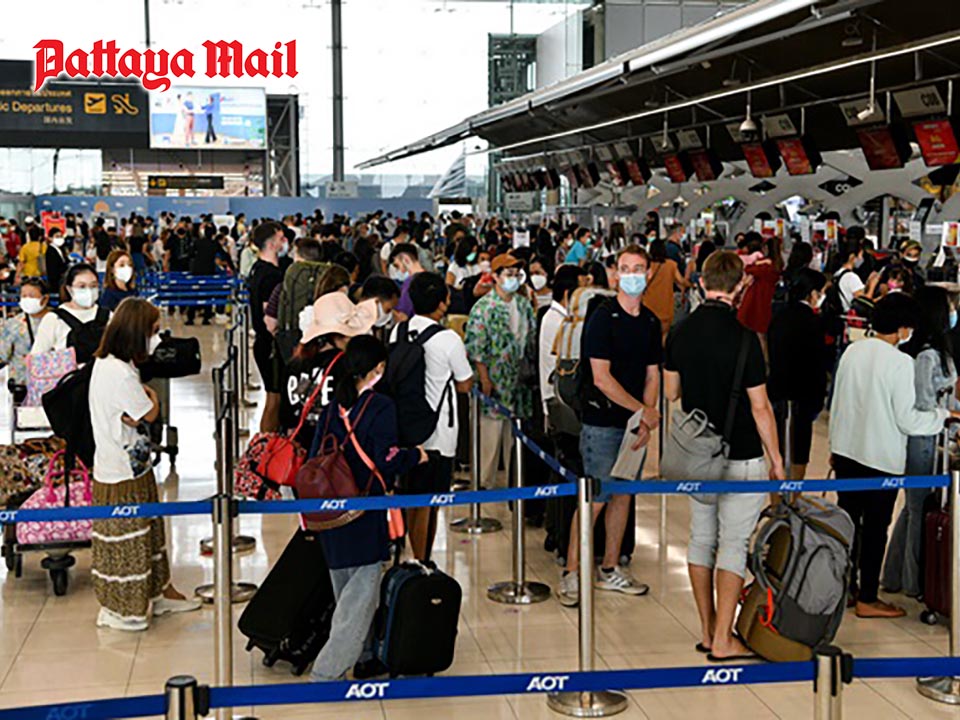
PATTAYA, Thailand – During the Cabinet meeting on April 22, Prime Minister Paetongtarn Shinawatra raised concerns about the growing misuse of Thailand’s visa-free entry scheme, which currently permits eligible foreign nationals to stay in the country for up to 90 days. Authorities have noted a rise in incidents involving visa overstays, unauthorized employment, and other legal violations linked to long-term stays under the program.
The Prime Minister has tasked the Ministry of Foreign Affairs, Ministry of Interior, and Ministry of Tourism and Sports with reviewing the scheme’s impact on national security, tourism management, and labor regulation. Officials have been instructed to explore policy adjustments, including a possible revision of the maximum stay period, to strike a balance between promoting tourism and ensuring legal compliance. The move reflects increasing pressure on the government to address loopholes in immigration control while maintaining Thailand’s appeal as a travel destination.
Pros of the Visa-Free Entry Scheme
Boost to Tourism: The visa-free entry scheme has been a major factor in attracting tourists, particularly from neighboring countries and long-haul destinations. It simplifies travel procedures, making it easier for tourists to visit Thailand for short stays and contributing significantly to the country’s tourism industry.
Increased Economic Activity: The influx of foreign visitors under the visa-free program helps boost local economies, particularly in sectors such as hospitality, retail, transportation, and entertainment, driving job creation and economic growth.
Enhanced Diplomatic Relations: The scheme strengthens diplomatic ties with countries that have mutual visa-free agreements with Thailand, fostering international goodwill and cooperation.
Attraction of Digital Nomads: The ease of staying up to 90 days encourages more remote workers and digital nomads to choose Thailand as a base, benefiting the local economy through increased spending on accommodations, co-working spaces, and other services.

Cons of the Visa-Free Entry Scheme
Visa Overstays and Unauthorized Employment: One of the major concerns is the rising number of visa overstays, with some foreign nationals remaining in Thailand well beyond the allowed 90 days. In some cases, individuals are also engaging in unauthorized employment, which undermines the country’s labor regulations and impacts local workers.
Security Risks: The lack of thorough checks on foreign nationals staying for extended periods may pose security risks, as it becomes harder to monitor individuals who may not comply with the country’s immigration laws. This raises concerns over illegal activities or individuals overstaying their visas for less than legitimate reasons.
Strain on Public Services: While the scheme boosts tourism, a surge in foreign nationals staying for extended periods can strain public services such as healthcare and infrastructure. Managing the needs of long-term tourists or visa overstayers may place an additional burden on resources intended for Thai citizens.
Impact on Employment Opportunities for Locals: Some critics argue that foreign nationals taking up work without the proper visas could deprive local workers of job opportunities, particularly in areas where labor laws are not strictly enforced.
The government is considering reviewing the visa-free entry scheme to address these issues, balancing the benefits of increased tourism and economic activity with the need for better control and enforcement of immigration regulations. A revision of the maximum stay period, along with stricter checks on visa compliance, could potentially mitigate some of the risks while maintaining Thailand’s appeal as a top tourist destination.










